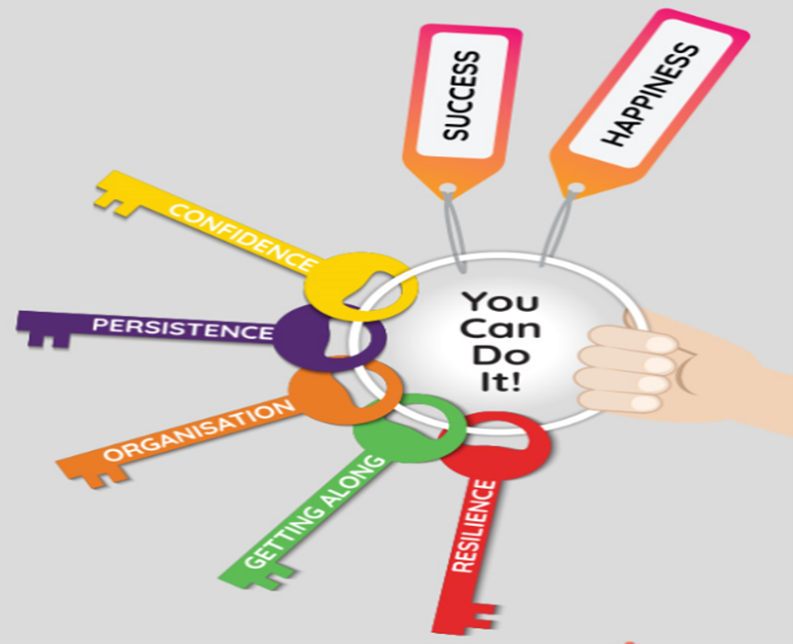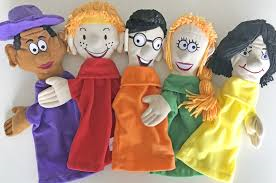
Prep to Year 2
The Social Emotional Learning Skills

The You Can Do It program promotes the social-emotional well-being and achievement of all children.
The mission of the You Can Do It program is to strengthen the five social and emotional skills and values which all children need, to manage their own learning and behaviour. These skills are Confidence, Organisation, Getting Along, Persistence and Resilience. Developed by Professor Michael E Bernard, these are regarded as the "5 Keys" for success and happiness and emphasise the importance of teaching children different ways of thinking.
 RESILIENCE
RESILIENCE
Being able to calm down within ten minutes of being extremely upset, down, worried or angry, without immediate adult-initiated support and guidance.
Being able to control your (aggression, withdrawal) when you become extremely upset.
When you are upset, it is good to think about what you can do ...
- Find something fun to do.
- Talk to a grown up.
- Calm down by taking time out.
- Do the 'High Five'.
- Take three deep breaths.
Resilience is demonstrated by not fighting when angry with someone and not throwing things when you do not get what you want.
It is not saying "No I don't want to" when you are nervous about doing something hard, meeting someone new, going someplace new, or returning to work or play after you have been sad or angry.
 ORGANISATION
ORGANISATION
Setting goals. Believing that setting goals helps you to aim to do your best work.
Listening carefully when someone is talking.
Planning your time. Making sure to not waste time and to be on time for things.
Taking care of your things and those of others.
Putting things away in their proper place, cleaning up and being neat.
For young children, organised behaviour is wanting to do your best, carrying your own bag and wanting to start work on time.
 GETTING ALONG
GETTING ALONG
Working and playing nicely together, behaving responsibly towards others and solving disagreements without squabbling or fighting.
Being honest, respectful, fair and caring.
Doing things to keep our school safe.
Following important rules of the classroom and playground including the 4 C's.
Social Responsibility means thinking that it is good to help others and accept everyone. Accepting everyone means thinking, "We are all different and we all have good things about us".
Playing by the rules is very important as it helps to keep us safe and happy.
 CONFIDENCE
CONFIDENCE
Believing that if you try to do something, you can do it.
Accepting yourself and thinking, 'I am likeable and good at doing many things'.
Taking risks and believing that it is okay to make mistakes when learning something new.
Positive self-talk. "I am able to talk loud enough for everyone to be able to hear me and I can look at peoples' faces when they speak to me".
Believing that you can do things that are hard to do.
 PERSISTENCE
PERSISTENCE
Trying hard especially when something feels like it is too hard to do or you are tired.
Thinking 'When work is hard, I can do it'.
Giving effort and thinking that the harder I try, the better I get.
Doing the best that you can, even when you have to do things that are not easy or fun.
Some examples of Persistent behaviour for children can include:
- Tidying up after playing with equipment.
- Finishing a new puzzle even if you have to ask for help.
- Keep trying when learning to cut with scissors.
- Trying to draw something that is hard to do without giving up.
- Not rushing your work.
- To keep trying even when feeling a little tired.